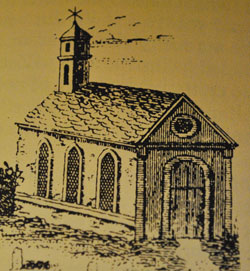The SALT commentary this week take us back to mid-September to understand the Gospel this week in dramatic form and where he have been.
The central question is “What do Jesus’ suffering, death, and resurrection really mean? This is Mark’s story about Jesus’ answer to this crucial question.”
SALT takes a long view – “Mark 8:22 – 10:52 is an important section within Mark’s Gospel”. “ It’s bookended by Jesus healing two blind men (the man at Bethsaida and Bartimaeus), and accordingly, between these healings the “story’s central theme is Jesus. attempting to “open the eyes” of his disciples with respect to his imminent death and resurrection. Three times he announces this coming trial; three times the disciples drastically misunderstand; three times Jesus responds with a corrective teaching — and this week’s reading is the third of those correctives”
Here are the three times Jesus is talking about his death and resurrection.He talks about what to reject to implement his kingdom
- Mark 8:27-38 -the first time through the cycle (Mark 8), Jesus rejects the power of military conquest and domination, and instead takes up the posture of the suffering servant (drawing on the ancient tradition in Isaiah 53)
- Mark 9:30-37– The second time through the cycle (Mark 9), Jesus redefines “greatness” as becoming a “servant of all.” Jesus rejects the social pecking order
- Mark 10:32-34 – “a ransom for many” Jesus adds another layer to their consternation: not only will he suffer and die, and not only will he be betrayed; he will also be shamed, mocked, and flogged. He rejects “spiritual order prestige”
He rejects military conquest, social classes, spiritual class. “ What’s in the place of these three? Jesus calls his disciples to the humble, down-to-earth way of servanthood, a life of genuine greatness seeking to serve, not dominate; to descend, not ascend; and to humbly, justly, beautifully love, not arrogantly jockey for position.
In the Gospel this week, James and John asks Jesus to spend eternity sitting in seats of honor beside Jesus. Jesus won’t have that and the other disciples are angry with James and John for asking. This causes Jesus to gather the disciples together once again to talk Jesus’ suffering path and its meaning.
The last sentence is the key- “For the Son of Man came not to be served but to serve, and to give his life a ransom for many”.
“This ransom is something of value given for the sake of liberating a captive — and in Mark’s Gospel, Jesus does indeed come as a healer and liberator. It’s not captivity to demonic forces; nor is it captivity to an unpayable debt owed to God. It’s the disciples’ captivity to self-centeredness, and to conventional notions of power, prestige, and supposed greatness.”









 Twenty Second Sunday after Pentecost, Oct. 20
Twenty Second Sunday after Pentecost, Oct. 20